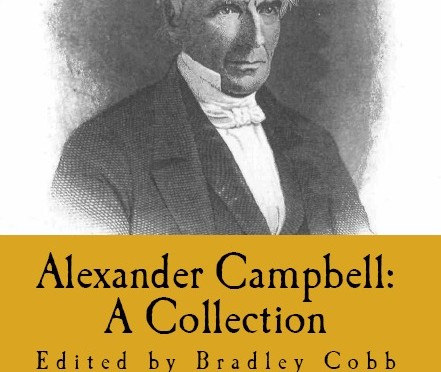The last several weeks’ worth of posts have been dedicated to looking at men who were apostles in one way or another, yet still men that the Bible never includes among “the twelve.” “The twelve” are the men that Jesus hand-selected to be His official ambassadors to the world. In the following chapters, we will be considering each of the individuals that the Bible includes as one of “the twelve.” Since Paul was never numbered with this group—yet was every bit as much an apostle as they were*[1]—he will be considered in his own chapter. There are thirteen men who were counted among “the twelve.” They are:
- Simon Peter
- Andrew
- James (son of Zebedee)
- John (son of Zebedee)
- Philip
- Thomas (called Didymus)
- Matthew (son of Alphaeus)
- Bartholomew (also called Nathanael)
- James (son of Alphaeus)
- Simon Zelotes (the Canaanite)
- Judas of James (also called Thaddeus)
- Judas Iscariot (who betrayed Jesus)
- Matthias (who was chosen to replace Judas)
When you talk about “the twelve apostles” in the Bible, these are the men who spring to mind. Each one of them was specifically chosen by Jesus Christ to be His ambassadors to the world. The original twelve men were selected by Jesus early in His ministry.
It came to pass in those days, that He went out into a mountain to pray, and continued all night in prayer to God. And when it was day, He called to Him his disciples: and of them He chose twelve, whom also He named “apostles”; Simon (whom he also named Peter), and Andrew his brother, James and John, Philip and Bartholomew, Matthew and Thomas, James the son of Alphaeus, and Simon [who was] called “Zealot,” and Judas [the son of] of James, and Judas Iscariot, which also was the traitor. (Luke 6:12-16).
But when Judas betrayed Jesus, then, being overcome with grief, killed himself, the Lord chose a replacement. After the resurrection and ascension of Jesus, the eleven remaining apostles were gathered together with other of His disciples. It was then, prior to the coming of the Kingdom of God on the Day of Pentecost, that the issue of replacing Judas came up.
And in those days Peter stood up in the midst of the disciples (the number of names together were about an hundred and twenty), and said “Men and brethren, this scripture must have been fulfilled, which the Holy Spirit by the mouth of David spoke before concerning Judas, who became [the] guide to them that took Jesus. For he was numbered with us, and had obtained part of this ministry.”
(Now this man purchased a field with the reward of [his] iniquity; and falling face-first, he burst asunder in the midst, and all his bowels gushed out. And it was known unto all the dwellers at Jerusalem; insomuch as that field is called in their proper tongue, “Aceldama,” that is to say, “The field of blood.”)*[2]
“For it is written in the book of Psalms, ‘Let his habitation be desolate, and let no man dwell therein: and let another take his office.’ Wherefore of these men which have companied with us all the time that the Lord Jesus went in and out among us, beginning from the baptism of John, unto that same day that he was taken up from us, must one be ordained to be a witness with us of his resurrection.”
And they appointed two, Joseph called Barsabas, who was surnamed Justus, and Matthias. And they prayed, and said, “You, Lord, who knows the hearts of all men, show which of these two thou hast chosen, so that he may take part of this ministry and apostleship, from which Judas by transgression fell, that he might go to his own place.”
And they gave forth their lots; and the lot fell upon Matthias; and he was numbered with the eleven apostles (Acts 1:16-26).
There are some who claim this is authority for a continued office of apostle in the church.*[3] However, the basis on which Peter knew that they needed a replacement for Judas were two Old Testament prophecies regarding enemies of Jehovah’s anointed one.
Pour out Your indignation upon them, and let Your wrathful anger take hold of them. Let their habitation be desolate; and let none dwell in their tents. For they persecute him whom You have smitten; and they talk to the grief of those whom You hast wounded. Add iniquity unto their iniquity: and do not let them come into Your righteousness. Let them be blotted out of the book of the living, and not be written with the righteous (Psalm 69:24-28).
When he shall be judged, let him be condemned: and let his prayer become sin. Let his days be few; and let another take his office (Psalm 109:7-8).
The only way this authorizes a continued apostolic office is if each of the original apostles became evil persecutors of Christianity before their deaths. Since that is not the case, then this argument is baseless. Additionally, true biblical apostles were able to perform miracles, including speaking by inspiration, healing the sick, and raising the dead. However, the Bible is pretty clear that miracles ceased within a generation of the establishment of the church. *[4] Anyone claiming to be an apostle today does not match up with the description of a true biblical apostle—that person is a fraud.
It was some years after Pentecost that King Herod, troubling the church, captured James (the son of Zebedee) and had him beheaded.*[5] “The twelve” were down to eleven.
Though the Bible does not record the details, the other eleven apostles were also murdered for their loyalty to Jesus Christ.*[6] But before their deaths, these men, “the twelve,” worked for Jesus and spread the gospel to the point that it was spread to “all the world.”*[7]
Jesus chose ordinary men as His kingdom subjects—fishermen and the like—rather than rabbis, Pharisees, scribes, and Sadducees. He needed men who were not bound by the traditions of the ages and the prejudices of the people, men who were thoughtful but teachable. He knew the frailties of these men, but He knew their possibilities as leaders of the people.*[8]
[1] *2 Corinthians 11:5
[2] *This section (verses 18-19) was not spoken by Peter, but was inserted by Luke. In Luke’s gospel account, he never mentioned anything about the death of Judas, so it would make sense for him to include it for Theophilus at this point. Also, consider that it says “their proper tongue,” showing that the one who spoke/penned these words was not a Jew. Had it been Peter saying this, he would have said “in our proper tongue” and wouldn’t have needed to explain the meaning.
[3] *The Mormon Church (the so-called “Church of Jesus Christ of Latter-Day Saints”) has men that they call their “twelve apostles” even today.
[4] *Apostles could also pass miraculous abilities on to others (see Acts 8, 19, and others). For an extended treatment of the ceasing of miracles, see the author’s book, The Holy Spirit in the Book of Acts, especially the Appendix on the end of miracles.
[5] *Acts 12:1-2.
[6] *Some may argue against this statement, asserting that John died a natural death. However, if John died a natural death, then Jesus was mistaken when He told both James and John that they would both “drink of the cup” that He was about to drink—being murdered (Mark 10:35-39). Since such a conclusion is unacceptable, we can know for certain that John was murdered as well for his loyalty to Jesus.
[7] *Colossians 1:5-6, 23; see also Matthew 24:14.
[8] *Roland Q. Leavell, Studies in Matthew: The King and the Kingdom. (Nashville: Convention Press, 1962). Page 32. [Pronoun capitalization added]

